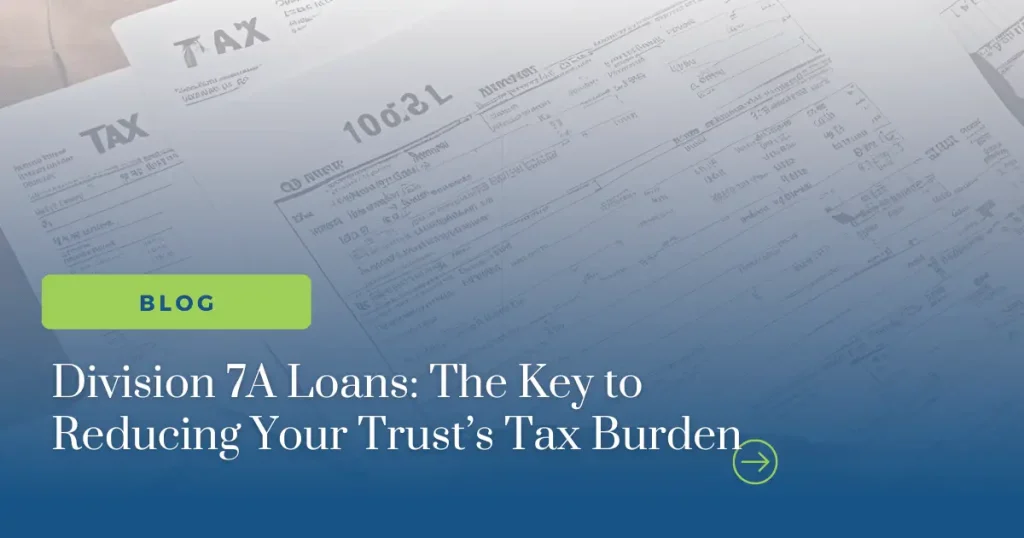One tax planning strategy that we frequently recommend to clients with trusts is the use of a bucket company. This is especially useful when it comes to distributing trust profits efficiently. A common component of this strategy is the Division 7A (Div 7A) loan—a term you may have heard us mention. Recently, we’ve been asked, “Are Div 7A loans good or bad?” The answer, as always, depends on how you use them.
What Are Div 7A Loans? At its core, a Div 7A loan is a tool for tax deferral, not avoidance. It allows a trust to distribute profits to a company rather than individuals, which can significantly reduce the tax burden for the year. But there’s a catch: the trust must repay the loan to the company within seven years in regular instalments.
Why Use a Bucket Company? When a trust distributes its profits to a bucket company, it defers paying higher tax rates that individuals would otherwise face. The money can then be used to fund the business, support the lifestyle of the business owners, or invest in assets like stock, plant, and equipment.
However, the money often doesn’t get repaid in full by the trust. This is where the Div 7A loan becomes crucial. If the loan isn’t repaid according to the required schedule, the ATO requires that a dividend be declared, leading to tax consequences. By year seven, there can be a large lump-sum repayment required, forcing the business to either inject cash back into the trust or declare a substantial dividend.
The Benefit of Tax Deferral The main advantage of using a bucket company and Div 7A loan is that it shifts your tax liability down the road. With individual tax rates expected to drop in the coming years, there’s a clear advantage in deferring payments to a future period when tax rates may be lower. Essentially, you’re gaining flexibility and breathing room to manage your tax obligations more effectively.
Is a Div 7A Loan Right for You? Ultimately, Div 7A loans are not inherently “good” or “bad”—they’re a legitimate tool for tax deferral. But they require careful planning. The repayments need to be structured correctly, and there needs to be a strategy in place for managing future dividends and avoiding large tax bills when the final repayment comes due.
If you’re considering this strategy or need help navigating the rules around Div 7A loans, we’re here to help. Get in touch to discuss whether this approach suits your trust and long-term tax planning goals.


